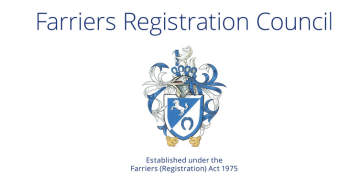Student wellbeing is as important as financial management and the curriculum, says Nathalie Richards. She outlines seven support strategies
A key aim of last week’s FE white paper is to help every young person gain the skills they need for life-long employment.
But there is no mention of student wellbeing and no new plans to support students’ emotional development in the months and years ahead.
If there’s one thing we have learned from the experience of the pandemic, it’s that emotional wellbeing and resilience – often referred to as “soft” skills – are critical as young people make choices for their futures against the backdrop of the crisis.
Colleges have a key role in helping their students to develop the skills to cope with whatever life has in store, long after Covid-19.
Here are seven strategies for supporting the wellbeing of FE students:
- Push wellbeing up the agenda
Wellbeing has to become as essential as financial management, recruitment and curriculum planning – and must be prioritised from the top.
Launch an initiative to upskill tutors and staff so they can spot the signs that a student could be struggling emotionally and step in to help.
A tutor who can identify when a student is going through a difficult emotional period or is finding it hard to stay on track with their learning might prevent an issue from becoming a crisis.
- Walk the talk
Take steps to create a culture of open conversation across your college when it comes to emotional wellbeing and mental health – including staff.
If they are happy to, encourage staff to talk openly with young people about the challenges they have faced and how they have overcome them.
This can break the stigma of mental health issues, strengthen relationships between students and tutors and inspire learners to find new ways to tackle their difficulties.
- Reduce isolation
Live online sessions can be opened up early so young people have an opportunity to talk through issues they might be having learning from home.
Spending time with their peers, in person or online, can ease pressure and help students find effective strategies for juggling college and home life.
- Build students’ resilience
Young people need resilience to be able to tackle the difficulties life throws at them, so make time in the curriculum for it.
Whether you run an online workshop to promote mindfulness, launch an exercise group or promote the benefits of writing a journal, you’ll be helping young people to develop a valuable toolkit to manage the challenges they face, inside and outside their studies.
- Get clarity on wellbeing issues
Run a short survey each week or month to get a clear understanding of how students are feeling. Digital tools such as apps can help to make surveys easily manageable with fast results.
Run a short survey each week or month to get a clear understanding of how students are feeling
Knowing that issues such as anxiety and self-harm are on the rise in your college allows you to make informed decisions about what support to put in place and act quickly to get vulnerable students the help they need.
- Keep support services in the spotlight
Not every student will have read the relevant area of the website or induction pack that outlines the specialist services on offer to support their pastoral and academic progress.
Kick off a new campaign to raise awareness of this support on social media and other channels, and keep wellbeing at the forefront of students’ minds throughout the academic year.
- Reach out to parents
While some students can make great progress learning remotely, others can find the experience isolating and can quickly disengage.
Parents and carers can still be an important source of support, even as students mature. So, strengthen home-college links with regular contact by phone or video conferencing and set up an online group where parents can support each other, share learning resources and keep young people motivated.
















Your thoughts